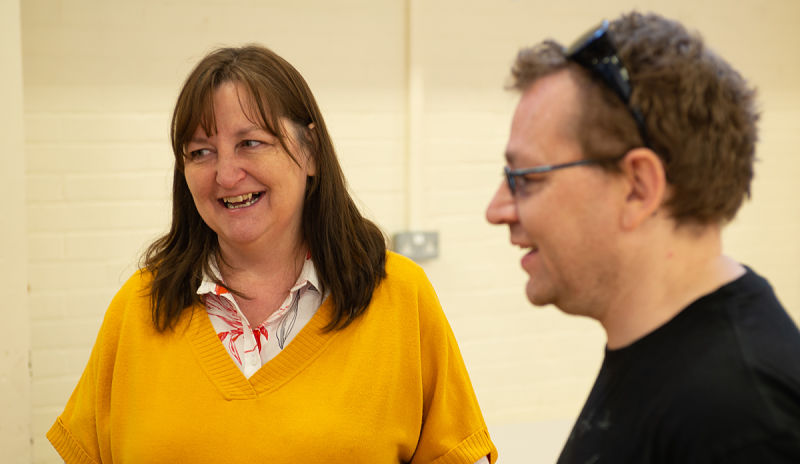This week we’re focusing on improving the health and wellbeing of our communities in Coventry through our exploratory work in the Willenhall neighbourhood.
Coventry is one of six areas nationally that form the Healthy Communities Together programme – established by The King’s Fund and The National Lottery Community Fund in 2021 to improve the health of communities, tackling deep-rooted health inequalities through a partnership between the voluntary and community sector (VCS), the NHS and local authorities.

A partnership infrastructure built around a ‘hyperlocal’ model of collaboration, that becomes more effective, more sustainable and improves health outcomes for people from all walks of life.
Grapevine’s CEO Clare Wightman is working closely on the project alongside our programme manager Dean Tilley.
Last month Clare spoke about Healthy Communities Together (HCT) in Coventry at a national roundtable event entitled ‘A Better Way and Adult Social Care.’
At the online event hosted by A Better Way, Clare stressed the importance of people, place and first-hand experience. Of resisting the inclination to take the route of “reorganising the deckchairs” by only talking between institutions about system change.
HCT starts instead from people and their lived experience – like Steve who has serious mental health issues and is willing to share his story so professionals can more deeply understand his experiences of social care and those of others too.

Immersing ourselves in Willenhall, meeting Steve, listening deeply to his words and inviting professionals to gather round the table, take their lanyards off and listen too helps grow horizontal power in the area. We are on our way to creating a plan for a healthy community – one that can be replicated city-wide once refined.
Monday’s fourth ‘Big Conversation’ at the local community centre saw Grapevine reconvene senior leaders from the NHS, community organisations and Willenhall residents to build the plan together.
Here we pull out snippets of the Big Conversation between services, community resources and local people.
Look out for more updates in early 2022 as the programme continues to move along.

From the professionals
“The things that made a difference to Steve in his story were connections to other people. Mental health is regarded as separate, but actually, it’s all about who you are. Not just in clinical buildings. E.g. people in the street saying hello and knowing your name.”
“Steve’s story highlights missed opportunities where the service has been difficult to access. It gives us a compassionate perspective to help us to see what we can do differently. A person’s church, their interests etc. what can we all do?” (Dan B)
“There could be funding to help community groups… to ask the right questions. Ask that one question in that moment, give them the opportunity to say they’re not okay.” (Vicky)
“We need to flex to our community and listen to their needs. We need to break down the barriers of working in silos. We’re all here because we have a passion for this.” (IAPT – Improving Access to Psychological Therapy, NHS Service)
“We need to recognise that community services are as important as statutory services. We need an infrastructure that can easily navigate this. We need to work together so that people aren’t ping-ponged between services who are saying ‘no, that’s not my problem’.” (Valerie, Public Health)
From people living and working in Willenhall
“There’s no real system where you’re ‘fixed’. They just wait until you break and then send you back to the start.” (Steve)
“You’re just left there. No info as a patient where to go next. Somebody should be holding the thread throughout.”
“There should be a drop-in in the local area. So you can see someone during your wait time for an appointment. You’re there and suicidal because you’ve had no help.” (Willenhall resident)
“Lots of people who can’t access mental health services have lost a lot of who they are. Linking them to community groups will help them to get social interaction to link them back into community.” (Willenhall resident)
